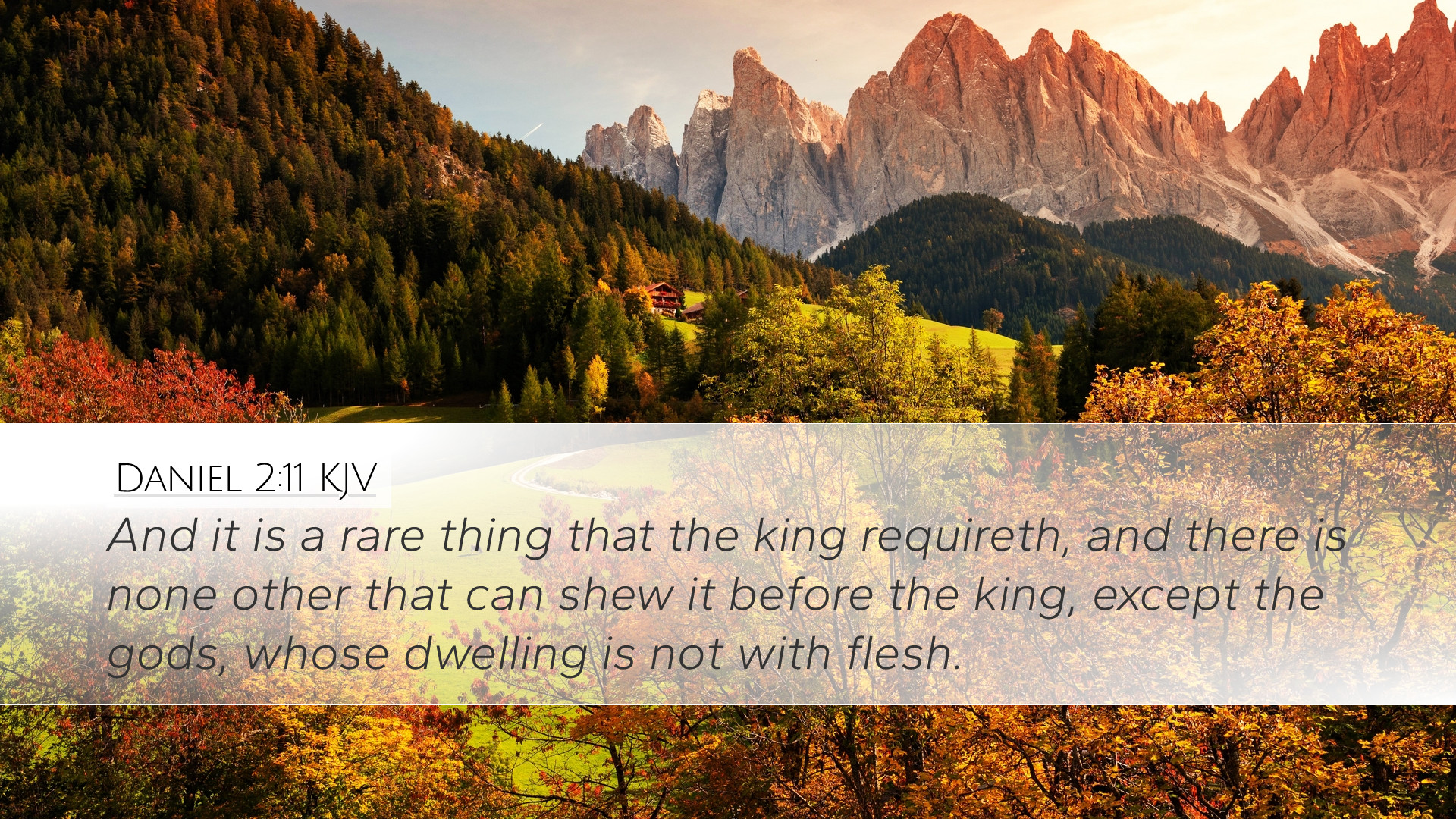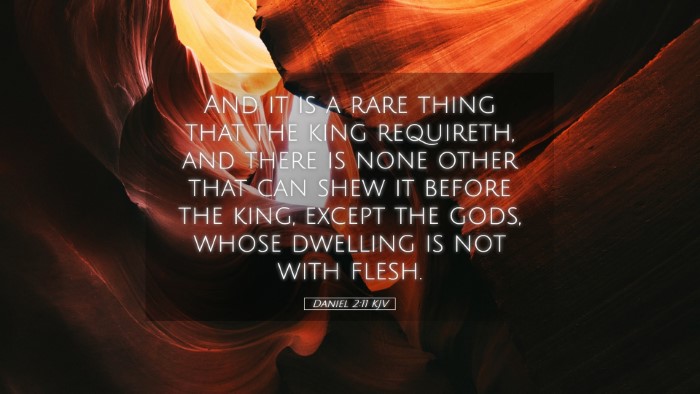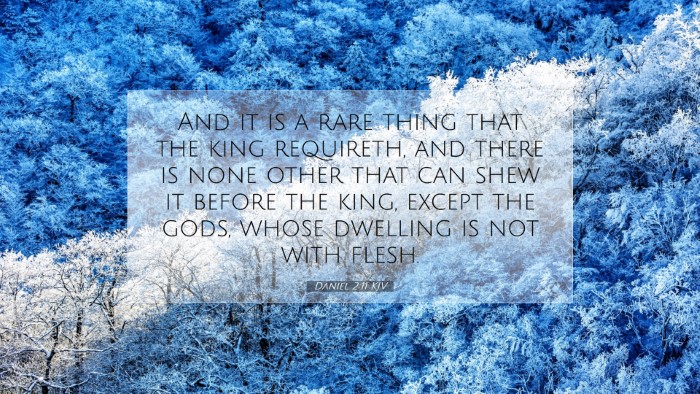Commentary on Daniel 2:11
Daniel 2:11 states, "It is a rare thing that the king requireth, and there is none other that can show it before the king, except the gods, whose dwelling is not with flesh." This verse arises from the context of King Nebuchadnezzar's demand for an interpretation of his dream, which highlights significant theological and philosophical themes relevant to both ancient and modern readers.
Contextual Insights
The backdrop of this passage is marked by the king's distress over a troubling dream that he could not remember or understand. This set forth a precedent for the examination of wisdom and divine revelation during the Babylonian exile. The king summoned his magicians, astrologers, and Chaldeans to interpret the dream but laid down a demanding challenge: they must not only interpret but also reveal the content of the dream itself. In this context, the response from the advisors is critical.
The Plea of the Advisors
The advisors' response indicates their recognition of the gravity of the task. They assert that the request is "a rare thing," emphasizing the impossibility of the task assigned by the king. This acknowledgment serves several purposes:
- Human Limitation: The magicians admit that the depth of understanding required is beyond human capacity.
- Divine Revelation: Their statement implies that true knowledge and wisdom come from a divine source.
- Contrast with the Wisdom of God: The passage distinctly contrasts human wisdom with divine wisdom, pointing to the eventual revelation that Daniel would bring as a servant of God.
The Nature of the Divine
The phrase "except the gods, whose dwelling is not with flesh" underscores a theological assertion present in the biblical narrative.
It reinforces the notion that divine wisdom transcends human limitations and is not accessible through earthly means. This can be elaborated on as follows:
- Transcendence of God: The advisors recognize the lofty stations of deities, implying that understanding dreams requires a connection with a higher spiritual realm.
- The Gap Between Man and the Divine: Their acknowledgment of the gods dwelling "not with flesh" speaks to the divine mystery and the separation between humanity and divinity.
- Foreshadowing of Christ: From a Christian theological perspective, this verse foreshadows the incarnation, where God would indeed dwell with men through Jesus Christ.
Historical Commentary
Matthew Henry notes that the Chaldeans' assertion reflects their understanding of the limitations of their own craft. They are keenly aware that they do not possess the wisdom that comes from God, and this acknowledgment is a crucial reminder for readers about the nature of wisdom and its divine origin. Henry elaborates on the futility of relying solely on human wisdom when seeking meaning in profound mysteries such as dreams.
Albert Barnes’ Perspective
Albert Barnes emphasizes that the Chaldeans' admission was meant to draw a line between their abilities and the divine. He contends that this scenario illustrates the necessity for divine intervention in matters that seem beyond human reach. Such insights serve to highlight the faith that should be placed in God, who possesses knowledge beyond our comprehension.
Adam Clarke’s Insights
Adam Clarke provides an analytical approach, observing that the Chaldeans were effectively communicating the desperation of their situation. Their claim that no flesh could reveal the king's dream aligns with a deeper theological implication: the intervention of God is essential for understanding spiritual matters and mysteries. Clarke also reinforces the significance of Daniel's subsequent role as an instrument of divine revelation, showcasing the transition from human limitation to divine wisdom.
Theological Reflections
The response of the advisors in Daniel 2:11 raises profound theological implications for understanding the nature of God and the limitations of human wisdom. Here are some reflections:
- The Sovereignty of God: The passage ultimately leads to a recognition of God's sovereignty over human affairs, particularly as He reveals mysteries to His prophets.
- The Call to Dependency: Believers are reminded of their dependency on God for wisdom and understanding, as human efforts can often fall short.
- The Role of Faith: The narrative also invites faith in God for the revelation of truth in a world often clouded by uncertainty.
Conclusion
The verse encapsulates a moment of crisis leading to recognition and revelation. The admission of the Chaldeans serves as a prelude to Daniel's introduction as a godly interpreter of dreams, ultimately pointing to the greater narrative of God's revelations through history. For pastors, theologians, and scholars, Daniel 2:11 serves as a foundational text reflecting on human limitations and God's infinite wisdom, calling believers not only to acknowledge their dependency but to cultivate deeper faith in the divine source of knowledge and understanding.


